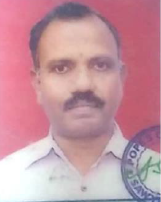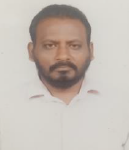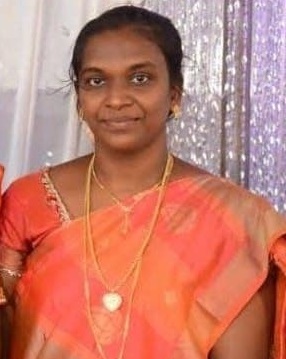Department of Physics
Department of Physics
The Department of Physics is one of the oldest in the college and is functioning in the prestigious Science Block. The department came into being in 1962 with pre-university programme. In the year 1968, the B.Sc Physics programme was introduced and the department has marched steadily and crossed several milestones under the leadership of Prof. P. Johnson Aruldhoss, Dr.K.Kumarasamy, Prof.K.SankaraRaman, Prof.J.Johnson, Prof.A.Arul Adithan, Prof.A.T.James, Prof.D.Kalavathy and now Dr.J.Jebaraj Devadasan. Introduced as an undergraduate department and now in rapid succession our department has been elevated to a research department with the introduction of M.Phil and Ph.D programmes. Since its inception, the department has all the basic infrastructural facilities like fully equipped laboratories with basic amenities, instruments, separate computer and research laboratories.It provides a conducive learning environment for the students to develop scientific insights and practical skills.The department has an exclusive library enriched with more than 4000 books.
Since 2019, the department has been recognized as a research centre under Manonmaniam Sundaranar University. At present there are four approved research guides in the department, and twelve scholars are pursuing research under their guidance.Two scholars have completed Ph.D through this centre Research in the department is being pursued in many of the major contemporary areas of experimental and theoretical physics, crystal growth, thin film and nano science studies.Over the decades, a team of well qualified, experienced and energetic faculty provided the right platform for the students to have a strong fundamental knowledge on Physics. With this strong foundation that they acquire here, the Alumni of this department are occupying higher echelons of administrative, academic and scientific fields.Endowment fund is also initiated which offers financial support to the needy and the deserving students in physics.The department also conducts periodical guest lectures, workshops, national and international seminars.
| S.No |
FACULTIES |
NAME |
DESIGNATION |
PROFILE |
|---|---|---|---|---|
| 1. |  |
Dr. H. Johnson Jeyakumar,M.Sc.,M.Phil.,Ph.D.,, | Associate Professor & Head of the Department | View Profile |
| 2. |  |
Dr. S. Johnson Navamani,M.Sc.,Ph.D., | Associate Professor | View Profile |
| 3. |  |
Mr. J.P. Edward Rajakumar,M.Sc.,M.Phil., | Associate Professor | View Profile |
| 4. |  |
Dr. P. Shanthini Grace,M.Sc.,M.Phil.,Ph.D., | Associate Professor | View Profile |
| 5. |  |
Dr. G. Jeevarani Thangam,M.Sc.,M.Phil.,Ph.D., | Assistant Professor | View Profile |
| 6. |  |
Dr. J. Jebasingh Kores,M.Sc.,M.Phil.,Ph.D., | Assistant Professor | View Profile |
| 7. |  |
Dr. K. Gnanaprakasam Dhinakar,M.Sc.,M.Phil.,Ph.D., | Assistant Professor | View Profile |
| 8. |  |
Dr. P. N. Selvakumar, M.Sc.,M.Phil.,Ph.D., | Assistant Professor | View Profile |
| 9. |  |
Mrs. A. Adeline Lydia Josephine, M.Sc.,M.Phil., | Assistant Professor | View Profile |
| 10. |  |
Dr.S.Benita Jeba Silviya | Assistant Professor | View Profile |
B.Sc
Physics
Programme
Outcomes (PO)
1. Understand
the fundamental concepts and significance of various physical phenomena;
identify, formulate and analyse problems in Physics and design solutions for
complex problems using the knowledge of Physics.
2. Develop
abilities and practical skills that encourage research and development
activities; employ critical thinking and emphasis on laboratory techniques and
analyze the results of Physics experiments and demonstrate the knowledge of
Physics and apply it to interdisciplinary environments.
3. Apply
and commit to professional ethics of Physics and ensure that the development in
Physics maintains and sustains the environment.
4. Produce
graduates who excel in the competencies and values required for leadership to serve
a rapidly evolving global community.
5. Motivate
the students to pursue higher education in Physics in social relevance and
pollution free environment.
M.Sc
Physics
Program
Outcomes (PO)
1. Create
a comprehensive scientific knowledge, which will help to understand, explain,
and to solve advanced scientific problems; identify, formulate and analyse
ingenious complex problems in Physics.
2. Use
methodology and knowledge of Physics to design innovative experiments, analyse
and interpret the data; Apply modern experimental and theoretical tools of
Physics along with modern computation technology to predict and design advanced
problems in Physics and to apply it for research and development activities.
3. Apply
and commit to professional ethics of Physics; Communicate the latest new
inventions in Physics to the society through effective presentation, reports,
projects and documentation.
4. Create
an awareness of the impact of Physics on the society and apply the knowledge of
Physics to critically assess and analyse the problems of society.
5. Recognise
the need to engage in independent and life-long learning in the context of
scientific/ technological change
B.Sc Physics
Programme Specific Outcomes (PSO)
1. Acquire core knowledge in Physics, including the major areas of Properties of matter, Mechanics, Optics, Electricity and Magnetism, Electronics, Modern Physics, Nuclear Physics, Solid State Physics and Energy Physics.
2. Plan and execute Physics related experiments and develop investigative skills
3. Develop the proficiency in the acquisition of data using a variety of laboratory instruments and in the analysis and interpretation of such data.
4. Discover Physics concepts in other disciplines such as Mathematics, Computer Science, Chemistry, etc.
5. Realize and develop an understanding of the impact of Physics and Science on society.
M.Sc Physics
Programme Specific Outcomes (PSO)
1. Learn the major areas of classical mechanics, quantum mechanics, electromagnetism, electronics, microprocessors, structure of solid materials and their different physical properties along with metallurgy, material science and the fundamental theory of nature at small scale and levels of atom and subatomic particles.
2. Develop proficiency in the analysis of complex physical problems and the use of mathematical or other appropriate techniques to solve them.
3. Provide a systemic understanding of Physics concepts, principles and theoriesalong with their applications.
4. Identify and interpret data from a range of sources that include books, scientific reports, journals and the internet.
5. Demonstrate engagement with current research and developments in the subject.
| S.No | Name | Publications Details |
|---|---|---|
| 1. | Dr.S. Johnson Navamani | Click Here |
| 2. | Dr. G. Jeeva Rani Thangam | Click Here |
